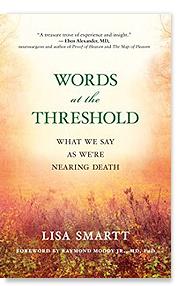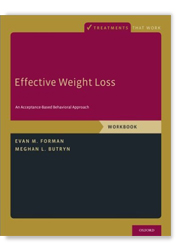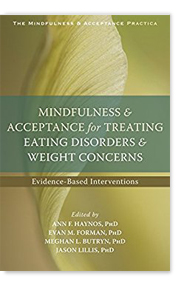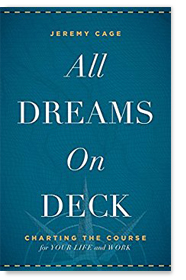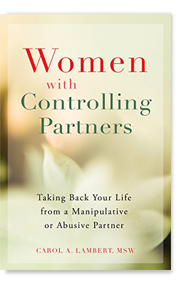My Radio Show
On my radio show, Relationships 2.0, I interview guests who present their unique perspectives and expertise on topics that cover all aspects of relationships. The authors and experts I chat with offer advice and tips for understanding ourselves and others better.
The show airs Thursdays on:
AM 1520 / 99.5 FM – Las Vegas, NV – 8:00 AM (PT)
101.5 FM – Long Beach, CA – 8:00 AM (PT)
96.3 FM – Boulder, CO – 9:00 AM (MT)
87.9 FM – Colorado Springs, CO – 9:00 AM (MT)
90.3 FM – Milwaukee, WI – 10:00 AM (CT)
AM 810 / 87.9 FM – Macon, GA – 11:00 AM (ET)
94.7 FM – Pittsburgh, PA – 11:00 AM (ET)
AM 1640 / 102.1 FM – Lancaster, PA – 11:00 AM (ET)
AM 1630 / 102.1 FM – Tampa, FL – 11:00 AM (ET)
90.3 FM – Jacksonville, FL – 11:00 AM (ET)
If you missed the radio station broadcasts, you can download my podcasts from iTunes, or go to the podcast archive page. Some past shows are also available on the video archive page.
Or subscribe to my podcast
If you would like to search for a past show using keywords, see my blog.
JANUARY – MARCH, 2017
Relationships 2.0 on Thursday March 23, 2017
This week my guest is Lisa Smartt author of Words at the Threshold: What We Say When We’re Nearing Death.
What Our Last Words Reveal About Life, Death, and the Afterlife
A person’s end-of-life words often take on an eerie significance, giving tantalizing clues about the ultimate fate of the human soul. Until now, however, no author has systematically studied end-of-life communication by using examples from ordinary people. When her father became terminally ill with cancer, author Lisa Smartt began transcribing his conversations and noticed that his personality underwent inexplicable changes. Smartt’s father, once a skeptical man with a secular worldview, developed a deeply spiritual outlook in his final days ? a change reflected in his language. Baffled and intrigued, Smartt began to investigate what other people have said while nearing death, collecting more than one hundred case studies through interviews and transcripts. In this groundbreaking and insightful book, Smartt shows how the language of the dying can point the way to a transcendent world beyond our own.
About the author:
Lisa Smartt, MA, is a linguist, educator, and poet. She is the author of Words at the Threshold: What We Say When We’re Nearing Death (New World Library 2017). The book is based on data collected through The Final Words Project, wwwfinalwordsproject.org, an ongoing study devoted to gathering and interpreting the mysterious language at end of life. She has worked closely with Raymond Moody, guided by his research into language, particularly unintelligible speech. They have co-facilitated presentations about language and consciousness at universities, hospices and conferences.
[podomatic-player src=”https://www.podomatic.com/embed/html5/episode/8391261?style=normal&autoplay=false”]
Relationships 2.0 on Thursday March 16, 2017
This week my guest is Marc Allen. Marc is joining me to discuss the 40th anniversary of Shakti Gawain’s book Creative Visualization: Use the Power of Your Imagination to Create What You Want in Your Life.
As introduced by Shakti Gawain to more than seven million readers worldwide, creative visualization is the art of using mental imagery and affirmation to produce positive changes in your life. Gawain’s clear writing style and vivid examples make Creative Visualization easy to read and apply to your personal needs and wants. This groundbreaking work has found enthusiastic followers in every country and language in which it has been published, and Gawain’s simple yet powerful techniques are now used successfully in many diverse fields, including health, education, business, sports, and the creative arts. Whether you read it for general inspiration and empowerment or to achieve specific goals (financial, creative, medical, career, relationship), Creative Visualization remains a profoundly powerful resource from a uniquely warm and wise teacher.
About my guest:
Marc Allen is an internationally renowned author and speaker, the president and publisher of New World Library, and an accomplished musician and composer.
His most recent book, The Magical Path — Creating the Life of Your Dreams and a World that Works for All — is filled with short, simple practices that have proven to help thousands of people make wonderful changes in their lives. Bestselling author Dr. Bernie Siegel put it this way: “Marc Allen is sharing the wisdom of the ages in a way that can guide and coach us to choose and create the life we desire.”
His previous book, The Greatest Secret of All, guides the reader in unraveling the secrets of happiness, inner peace, ease, and fulfillment. Bestselling author Gay Hendricks says of The Greatest Secret of All: “It is a wonderful contribution to humanity. It gives us the key to a life well lived.”
Marc’s most popular book is The Millionaire Course: A Visionary Plan for Creating the Life of Your Dreams. It is an entire course, filled with keys to success. Over the years, he has written and published several other books, including Visionary Business: An Entrepreneur’s Guide to Success, which brought his principles to those in the business world, and A Visionary Life, which remains one of the best books ever written on personal fulfillment.
He has also published The Type-Z Guide to Success — A Lazy Person’s Manifesto for Wealth and Fufillment — which is loved by lazy people all over the world, and The Ten Percent Solution: Simple Steps to Improve Our Lives and the World. He produced a popular audio CD (over 100,000 copies sold), Stress Reduction and Creative Meditations. In recent years he has expanded his reach to deliver his message through a variety of digital formats.
He has produced The Success With Ease Audio Course, a 12-audio download available through his website, MarcAllen.com. The 11th audio of the series is available as a separate download; it’s titled The Spiritual Path to Success.
Marc co-founded New World Library with Shakti Gawain in 1977 and has guided the company from a small start-up with no capital to its current position as one of the leading independent publishers in the country. Along the way, he has published many books that have changed lives, including Eckhart Tolle’s The Power of Now, Deepak Chopra’s The Seven Spiritual Laws of Success, and Shakti Gawain’s Creative Visualization.
[podomatic-player src=”https://www.podomatic.com/embed/html5/episode/8383713?style=normal&autoplay=false”]
Relationships 2.0 on Thursday March 9, 2017
This week my guest is Stephanie Sarkis, PhD. She explains Gaslighting, a manipulation technique used by abusers, sociopaths and narcissists.
Gaslighting: Know it, Identify It and Protect Yourself
Gaslighting is a tactic in which a person or entity, in order to gain more power, makes a victim question their reality. It works much better than you may think. Anyone is susceptible to gaslighting, and it is a common technique of abusers, dictators, narcissists, and cult leaders. It is done slowly, so the victim doesn’t realize how much they’ve been brainwashed. For example, in the movie Gaslight (1944), a man manipulates his wife to the point where she thinks she is losing her mind.
1. They tell blatant lies.
You know it’s an outright lie. Yet they are telling you this lie with a straight face. Why are they so blatant? Because they’re setting up a precedent. Once they tell you a huge lie, you’re not sure if anything they say is true. Keeping you unsteady and off-kilter is the goal.
2. They deny they ever said something, even though you have proof.
You know they said they would do something; you know you heard it. But they out and out deny it. It makes you start questioning your reality—maybe they never said that thing. And the more they do this, the more you question your reality and start accepting theirs.
3. They use what is near and dear to you as ammunition.
They know how important your kids are to you, and they know how important your identity is to you. So those may be one of the first things they attack. If you have kids, they tell you that you should not have had those children. They will tell you’d be a worthy person if only you didn’t have a long list of negative traits. They attack the foundation of your being.
4. They wear you down over time.
This is one of the insidious things about gaslighting—it is done gradually, over time. A lie here, a lie there, a snide comment every so often…and then it starts ramping up. Even the brightest, most self-aware people can be sucked into gaslighting—it is that effective. It’s the “frog in the frying pan” analogy: The heat is turned up slowly, so the frog never realizes what’s happening to it.
5. Their actions do not match their words.
When dealing with a person or entity that gaslights, look at what they are doing rather than what they are saying. What they are saying means nothing; it is just talk. What they are doing is the issue.
6. They throw in positive reinforcement to confuse you.
This person or entity that is cutting you down, telling you that you don’t have value, is now praising you for something you did. This adds an additional sense of uneasiness. You think, “Well maybe they aren’t so bad.” Yes, they are. This is a calculated attempt to keep you off-kilter—and again, to question your reality. Also look at what you were praised for; it is probably something that served the gaslighter.
7. They know confusion weakens people.
Gaslighters know that people like having a sense of stability and normalcy. Their goal is to uproot this and make you constantly question everything. And humans’ natural tendency is to look to the person or entity that will help you feel more stable—and that happens to be the gaslighter.
8. They project.
They are a drug user or a cheater, yet they are constantly accusing you of that. This is done so often that you start trying to defend yourself, and are distracted from the gaslighter’s own behavior.
9. They try to align people against you.
Gaslighters are masters at manipulating and finding the people they know will stand by them no matter what—and they use these people against you. They will make comments such as, “This person knows that you’re not right,” or “This person knows you’re useless too.” Keep in mind it does not mean that these people actually said these things. A gaslighter is a constant liar. When the gaslighter uses this tactic it makes you feel like you don’t know who to trust or turn to—and that leads you right back to the gaslighter. And that’s exactly what they want: Isolation gives them more control.
10. They tell you or others that you are crazy.
This is one of the most effective tools of the gaslighter, because it’s dismissive. The gaslighter knows if they question your sanity, people will not believe you when you tell them the gaslighter is abusive or out-of-control. It’s a master technique.
11. They tell you everyone else is a liar.
By telling you that everyone else (your family, the media) is a liar, it again makes you question your reality. You’ve never known someone with the audacity to do this, so they must be telling the truth, right? No. It’s a manipulation technique. It makes people turn to the gaslighter for the “correct” information—which isn’t correct information at all.
The more you are aware of these techniques, the quicker you can identify them and avoid falling into the gaslighter’s trap.
Original Post on Psychology Today: Gaslighting: Know It and Identify It to Protect Yourself
About the author:
Dr. Stephanie Sarkis is a National Certified Counselor (NCC), Licensed Mental Health Counselor (LMHC), and AMHCA Diplomate and Clinical Specialist in Child and Adolescent Counseling based in Tampa Bay, Florida, where she specializes in the treatment of ADD/ADHD. Dr. Sarkis conducts evaluations, testing, diagnosis, and counseling services. She also is a public speaker, consultant, coach, and is a facilitator in collaborative law.
[podomatic-player src=”https://www.podomatic.com/embed/html5/episode/8375734?style=normal&autoplay=false”]
Relationships 2.0 on Thursday March 2, 2017
This week my guest is Evan M. Forman PhD author of Effective Weight Loss: An Acceptance-Based Behavioral Approach.
The obesity epidemic is one of the most serious public health threats confronting the nation and the world. The majority of overweight individuals want to lose weight, but the overall success of self-administered diets and commercial weight loss programs is very poor. Scientific findings suggest that the problem boils down to adherence. The dietary and physical activity recommendations that weight loss programs promote are effective; however, people have difficulty initiating and maintaining changes.
Effective Weight Loss presents 25 detailed sessions of an empirically supported, cognitive-behavioral treatment package called Acceptance-Based Behavioral Treatment (ABT). The foundation of this approach is comprised of the nutritional, physical activity, and behavioral components of the most successful, gold-standard behavioral weight loss programs. These components are synthesized with acceptance, willingness, behavioral commitment, motivation, and relapse prevention strategies drawn from a range of therapies. ABT is based on the idea that specialized self-control skills are necessary for weight control, given our innate desire to consume delicious foods and to conserve energy by avoiding physical activity. These self-control skills revolve around a willingness to choose behaviors that may be perceived as uncomfortable, for the sake of a more valuable objective. The Clinician Guide is geared towards helping administer treatment, and the companion Workbook provides summaries of session content, exercises, worksheets, handouts, and assignments for patients and clients receiving the treatment. The books will appeal to psychologists, primary care physicians, nutritionists, dieticians, and other clinicians who counsel the overweight.
About the author:
Evan Forman, PhD, is a Professor of Psychology at Drexel University and Co-Director of the Laboratory for Innovations in Health-Related Behavior Change. He also serves as Director of Graduate Studies and Chair of the Society for Clinical Psychology’s Committee on Science and Practice and is Past-President of the Philadelphia Behavior Therapy Association. He has been the lead investigator of several National Institute of Health-sponsored trials, including two comparing the effectiveness and processes of traditional cognitive therapy to newer acceptance-based behavior therapies. He also has been funded to examine the feasibility and effectiveness of smartphone and computerized neurocognitive training interventions for weight control.
[podomatic-player src=”https://www.podomatic.com/embed/html5/episode/8367791?style=normal&autoplay=false”]
Relationships 2.0 on Thursday February 23, 2017
This week on Relationships 2.0 my guest is Evan M. Forman PhD co-editor/author of Mindfulness and Acceptance for Treating Eating Disorders & Weight Concerns: Evidence-based Interventions.
Disordered eating, negative body image, and problems with weight have become an epidemic—and research shows that traditional treatments are not always effective. This professional resource offers proven-effective interventions using mindfulness and acceptance for treating clients with disordered eating, body image, or weight issues—and for whom other treatments have failed.
Millions of people in the United States suffer from eating disorders, and dissatisfaction with weight and body type—even in individuals whose weight is considered normal—is similarly widespread. In addition, more than half of Americans could benefit from healthy weight loss. Unfortunately, not all people with eating disorders or weight concerns respond to traditional therapeutic interventions; many continue to suffer significant symptoms even after treatment. What these clients need is an integrated therapeutic approach that will prove effective in the long run—like the scientifically backed methods in this much-needed clinical guide.
Edited by Ann F. Haynos, Jason Lillis, Evan M. Forman, and Meghan L. Butryn; and with contributors including Kay Segal, Debra Safer, and Hugo Alberts; Mindfulness and Acceptance for Treating Eating Disorders and Weight Concerns is the first professional resource to incorporate a variety of proven-effective acceptance- and mindfulness-based approaches—such as acceptance and commitment therapy (ACT), dialectical behavior therapy (DBT), and mindfulness-based cognitive therapy (MBCT)—into the treatment of persistent disordered eating, body image issues, and weight problems.
With these evidence-based interventions, you’ll be ready to help your clients move beyond their problems with disordered eating, body dissatisfaction, and weight management once and for all.
About the editor/author:
Evan M. Forman, PhD, is professor and director of graduate studies for the department of psychology at Drexel University in Philadelphia, PA, as well co-director of the Laboratory for Innovations in Health-Related Behavior Change. His research, which is funded by the National Institutes of Health and the Obesity Society, focuses on using technology and new behavioral frameworks to enhance interventions for health behavior change, especially obesity.
[podomatic-player src=”https://www.podomatic.com/embed/html5/episode/8360469?style=normal&autoplay=false”]
Relationships 2.0 on Thursday February 16, 2017
This week my guests are W. Brad Johnson, PhD & David Smith, PhD authors of Athena Rising: How and Why Men Should Mentor Women.
Increasingly, new employees and junior members of any profession are encouraged-sometimes stridently-to “find a mentor!” Four decades of research reveals that the effects of mentorship can be profound and enduring; strong mentoring relationships have the capacity to transform individuals and entire organizations. Organizations that retain and promote top talent-both female and male-are more likely to thrive. But the mentoring landscape is unequal. Evidence consistently shows that women face more barriers in securing mentorships than men, and when they do find a mentor, they may reap a narrower range of both career and psychological benefits. Athena Rising is a book for men about how to mentor women deliberately and effectively. It is a straightforward, no-nonsense manual for helping men of all institutions, organizations, and businesses to become excellent mentors to women. Co-authors W. Brad Johnson, PhD and David Smith, PhD draw from extensive research and years of experience as experts in mentoring relationships and gender workplace issues. When a man mentors a woman, they explain, the relationship is often complicated by conventional gender roles and at times hostile external perceptions. Traditional notions of mentoring are often modeled on male-to-male relationships-the sort that begin on the golf course, involve a nearly exclusive focus on career achievement, and include more than a few slaps on the back over drinks after work. But women often report a desire for mentoring that integrates career and interpersonal needs. Women want a mentor who not only “gets” this, but truly honors it. Men need to fully appreciate just how crucial their support of promising junior women can be in helping them to persist, promote, and thrive in their vocations and organizations. As women succeed, lean in, and assume leading roles in any organization or work context, that culture will become more egalitarian, effective, and prone to retaining top talent.
About the authors:
W. Brad Johnson, PhD is professor of psychology in the Department of Leadership, Ethics, and Law at the United States Naval Academy, and a faculty associate in the Graduate School of Education at Johns Hopkins University. A clinical psychologist and former Lieutenant Commander in the Navy’s Medical Service Corps, Dr. Johnson served as a psychologist at Bethesda Naval Hospital and the Medical Clinic at Pearl Harbor where he was the division head for psychology. He is a fellow of the American Psychological Association and recipient of the Johns Hopkins University Teaching Excellence Award. He has served as chair of the American Psychological Association’s Ethics Committee and as president of the Society for Military Psychology. Dr. Johnson is the author of more than 100 journal articles and book chapters—many on the topic of mentoring—and 12 books, in the areas of mentoring, professional ethics, and counseling. Books of related interest include: On Being a Mentor: A Guide for Higher Education Faculty (2nd Ed.) (2015), The Elements of Mentoring (Revised Ed.) (2008, with Charles Ridley), The Elements of Ethics for Professionals (2008, with Charles Ridley), and Becoming a Leader the Annapolis Way (2006, with Greg Harper).
David Smith, PhD is an active duty U.S. Navy Captain and permanent military professor in the Department of Leadership, Ethics, and Law at the United States Naval Academy having served four years as the chair. A former Navy Pilot, Dr. Smith led diverse organizations of women and men culminating in command of a squadron in combat and flew more than 3,000 hours over 19 years including combat missions in Iraq and Afghanistan. As a sociologist trained in military sociology and social psychology, he focuses his research in gender, work, and family issues including dual career families, military families, women in the military, and retention of women. Dr. Smith is the author of numerous journal articles and book chapters—many on the topic of gender and the workplace. His most recent publications include: “On the Fast Track: Dual Military Couples Navigating Institutional Structures” in Contemporary Perspectives in Family Research (2013), “Dual Military Families: Confronting a Stubborn Military Institution” in Military Families and War in the 21st Century, Comparative Perspectives (2015), “Leadership and Peer Behaviors: Women in Combat” in Military Medicine (2016) and “Gender and the Military Profession: Early Career Influences, Attitudes and Intentions” in Armed Forces & Society.
[podomatic-player src=”https://www.podomatic.com/embed/html5/episode/8352355?style=normal&autoplay=false”]
Relationships 2.0 on Thursday February 9, 2017
This week my guest is Jeremy Cage author of All Dreams on Deck: Charting the Course for Your Life and Work.
Set sail for the adventure of your life and work!
As Katie Couric, journalist, author and Yahoo Global News Anchor attests, ”Jeremy Cage has written a great book that everyone who thinks about how to better balance work-life issues would benefit from reading….he’s also shown us how to better navigate life’s personal and professional challenges.”
All Dreams on Deck will help you articulate your most important dreams in work and life and will then give you a practical approach for realizing those dreams. Through engaging, real-life examples, you will be inspired to live life to your full potential.
Author Jeremy Cage, President of the Cage Group, begins with the premise that there is no such thing as work-life balance. There is only life balance–of which work is an important part. With this as the foundation, he will guide you through a simple and actionable approach to determining the most important components of your life–the Grab Bags in your LifeBoat–then chart the course to making all the dreams in that LifeBoat a reality.
Jeremy, who has lived and worked in nine countries, has used this approach to help thousands of executives, managers, and their teams unleash their potential. He has also realized his own dreams by taking a sixteen-month sabbatical to sail around the world with his family before returning to the US to launch several exciting new companies. So rather than theoretical mumbo jumbo, Jeremy presents compelling, real-life examples of how to dream specifically, get highly intentional about those dreams, plan and prepare well–then summon the courage to set sail.
About the author:
Jeremy Cage’s life mission is to help unleash the full potential of as many businesses and as many people as he possibly can. His business experience spans three decades of delivering strong, profitable business growth for Procter & Gamble, Schering-Plough Healthcare, PepsiCo, The Lighting Science Group, and his own firm, The Cage Group. He is a truly global citizen, having lived and worked in Germany, France, Belgium, Sweden, the United Kingdom, Venezuela, Brazil, Mexico, and the United States.
Jeremy believes that most businesses and most people regardless of how successful they have been to date do not actually achieve their full potential ”as defined by them.” Committed to not letting that happen in his own life, he embarked on a sixteen-month voyage to sail the world, with his wife, Pat, and their kids, Bradley and Elena. This stretched his leadership skills, built his courage, pushed him beyond his comfort zone, and stimulated his creativity through interactions with new cultures and people.
Jeremy’s unique combination of business adventures and life adventures forms the foundation of the tools he uses to create breakthrough strategy, marketing, innovation, and people solutions for a diverse range of Fortune 500 companies.
[podomatic-player src=”https://www.podomatic.com/embed/html5/episode/8344719?style=normal&autoplay=false”]
Relationships 2.0 on Thursday February 2, 2017
This week on my guest is Ann Haynos PhD co-editor/author of Mindfulness and Acceptance for Treating Eating Disorders & Weight Concerns: Evidence-based Interventions.
Disordered eating, negative body image, and problems with weight have become an epidemic—and research shows that traditional treatments are not always effective. This professional resource offers proven-effective interventions using mindfulness and acceptance for treating clients with disordered eating, body image, or weight issues—and for whom other treatments have failed.
Millions of people in the United States suffer from eating disorders, and dissatisfaction with weight and body type—even in individuals whose weight is considered normal—is similarly widespread. In addition, more than half of Americans could benefit from healthy weight loss. Unfortunately, not all people with eating disorders or weight concerns respond to traditional therapeutic interventions; many continue to suffer significant symptoms even after treatment. What these clients need is an integrated therapeutic approach that will prove effective in the long run—like the scientifically backed methods in this much-needed clinical guide.
Edited by Ann F. Haynos, Jason Lillis, Evan M. Forman, and Meghan L. Butryn; and with contributors including Kay Segal, Debra Safer, and Hugo Alberts; Mindfulness and Acceptance for Treating Eating Disorders and Weight Concerns is the first professional resource to incorporate a variety of proven-effective acceptance- and mindfulness-based approaches—such as acceptance and commitment therapy (ACT), dialectical behavior therapy (DBT), and mindfulness-based cognitive therapy (MBCT)—into the treatment of persistent disordered eating, body image issues, and weight problems.
With these evidence-based interventions, you’ll be ready to help your clients move beyond their problems with disordered eating, body dissatisfaction, and weight management once and for all.
About the editor/author:
Editor Ann F. Haynos, PhD, is a clinical psychologist and T32 postdoctoral research fellow funded by the National Institute of Mental Health through the department of psychiatry at the University of Minnesota Medical Center. Haynos’s research interests pertain to identifying the underlying mechanisms associated with the development and maintenance of disordered eating, and developing and evaluating treatments for eating disorders and weight concerns. In a clinical capacity, Haynos has worked primarily with individuals with eating disorders using dialectical behavior therapy (DBT) and acceptance and commitment therapy (ACT) models.
[podomatic-player src=”https://www.podomatic.com/embed/html5/episode/8335543?style=normal&autoplay=false”]
Relationships 2.0 on Thursday January 26, 2017
This week my guest is Carol Lambert MSW author of Women with Controlling Partners: Taking Back Your Life from a Manipulative or Abusive Partner.
A controlling or abusive partner can break even the strongest person—unless you know what to look for. Written by an expert in intimate partner abuse and based on her highly successful recovery program for women with controlling partners, this book will give you the strength, courage, and strategies you need to acknowledge the problem and stand up for yourself once and for all—whether you stay or leave the relationship.
If you have a controlling partner, you aren’t alone. Millions of women suffer psychological abuse at the hands of a spouse or intimate partner during some point in their lives, not fully seeing or knowing what is happening to them. Research shows that psychological abuse affects women’s overall well-being more than physical abuse, is a bigger contributor to inducing fear, and can be a precursor to violence. To make matters worse, having a controlling partner often results in hidden injuries like anxiety, depression, low self-esteem, trauma, and low self-efficacy—feeling like you can’t make a difference in your life. So, where can you turn for help?
Based on over a decade of clinical and domestic abuse research, Women with Controlling Partners will help you identify the coercive constraints that can be predictive of intimate partner abuse, recognize the harmful effects of psychological abuse on your mental and physical health, and gain the personal strength and power to break free. Using the author’s three-stage recovery model, you’ll be empowered to move out of denial, deconstruct what holds you psychologically captive, and take back your life.
Abuse can be devastating, and having a controlling partner can make you feel crazy—and as if you’re the one responsible. But you’re not crazy, and you’re not to blame! With this important, one-of-a-kind recovery process, you’ll finally find the clarity of mind, courage, and strength to protect yourself from the hurtful control that damages your mental and physical health, and move toward a safer and happier life.
About the author:
Carol A. Lambert, MSW, is a psychotherapist and domestic violence expert with three decades of clinical experience helping individuals and groups, and a career-long commitment to women’s psychological health. Since 1993, she developed a unique approach and cofounded the Recovery Groups for Women with Controlling Partners that bring together insights from mental health, trauma recovery, and domestic violence. At McLean Hospital, a psychiatric hospital affiliated with Harvard Medical School, she provides domestic violence training and consultation. Over the years, her expertise took her from educating volunteers in a domestic violence program affiliated with local police to providing training and consultation to the National Football League. In all her endeavors, she brings critical attention to psychological abuse and the major losses to women’s mental and physical health. She’s currently in private clinical practice in Belmont and Concord, MA.
[podomatic-player src=”https://www.podomatic.com/embed/html5/episode/8329133?style=normal&autoplay=false”]
Relationships 2.0 on Thursday January 19, 2017
This week my guest is Arthur Ciaramicoli PhD author of The Stress Solution. We discuss the stressful period we all endured during the Presidential campaign and election, as well as the challenges we continue to face individually and collectively. Many relationships are strained and need to be healed. So, I thought it would be a good time to discuss the importance of compassion, character and values. We need to find ways to come together rather than grow further apart.
 My guest: Arthur P. Ciaramicoli, Ed.D., Ph.D., is a licensed clinical psychologist who has been treating clients for more than 35 years. He is the Chief Medical Officer of Soundmindz.org a popular mental health site. He is also a member of the American Psychological Association and the Massachusetts Psycho-logical Association. Currently in private practice, Dr. Ciaramicoli has been on the faculty of Harvard Medical School for several years, lecturer for the American Cancer Society, Chief Psychologist at Metrowest Medical Center, and director of the Metrowest Counseling Center and of the Alternative Medicine division of Metrowest Wellness Center in Framingham, Massachusetts.
My guest: Arthur P. Ciaramicoli, Ed.D., Ph.D., is a licensed clinical psychologist who has been treating clients for more than 35 years. He is the Chief Medical Officer of Soundmindz.org a popular mental health site. He is also a member of the American Psychological Association and the Massachusetts Psycho-logical Association. Currently in private practice, Dr. Ciaramicoli has been on the faculty of Harvard Medical School for several years, lecturer for the American Cancer Society, Chief Psychologist at Metrowest Medical Center, and director of the Metrowest Counseling Center and of the Alternative Medicine division of Metrowest Wellness Center in Framingham, Massachusetts.
In addition to treating patients, Dr. Ciaramicoli has lectured at Harvard Health Services, Boston College Counseling Center, the Space Telescope Science Institute in Baltimore as well as being a consultant to several major corporations in the Boston area. Dr. Ciaramicoli is also a seasoned media expert.
He has appeared on CNN, CNNfn, Fox News Boston, Comcast TV, New England Cable News, Good Morning America Weekend, The O’Reilly Report, and other shows. He has been a weekly radio guest on Your Healthy Family on Sirius Satellite Radio and Holistic Health Today, and has been interviewed on The People’s Pharmacy, The Gary Null Show, and more than two dozen other radio programs airing on NPR, XM Radio, and numerous AM and FM stations.
Dr. Ciaramicoli is the author of The Stress Solution: How Using Empathy and Cognitive Behavioral Therapy decreases Anxiety and increases Resilience (New World Library, 2016), The Curse of the Capable: The Hidden Challenges to a Balanced, Healthy, High Achieving Life (Wiley, 2010), Performance Addiction: The Dangerous New Syndrome and How to Stop It from Ruining Your Life (Wiley 2004) and The Power of Empathy: A Practical Guide to Creating Intimacy, Self-Understanding, and Lasting Love (Dutton 2000), which is now published in 7 languages. His first book, Treatment of Abuse and Addiction, A Holistic Approach (Jason Aronson, 1997) was selected as Book of the Month by The Psychotherapy Book News. He is also the coauthor of Beyond the Influence: Understanding and Defeating Alcoholism (Bantam 2000).
[podomatic-player src=”https://www.podomatic.com/embed/html5/episode/8320016?style=normal&autoplay=false”]
Relationships 2.0 on Thursday January 12, 2017
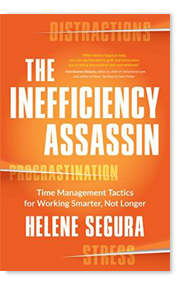 This week Helene Segura, author of The Inefficiency Assassin: Time Management Tactics for Working Smarter Not Longer is back to give us a New Year’s reboot to help us create and maintain new habits.
This week Helene Segura, author of The Inefficiency Assassin: Time Management Tactics for Working Smarter Not Longer is back to give us a New Year’s reboot to help us create and maintain new habits.
About the book:
Slay procrastination, distraction, and overwhelm!
The Inefficiency Assassin™ presents a revolution in time management books – a way to improve productivity and Kick Chaos to the Curb™ once and for all!
You will learn how to:
- Create productive calendars, yet morph time when you need to put out fires (or chase the opportunity of lifetime)
- Slay lost time and beat back overwhelm from procrastination, interruptions and distractions
- Implement productivity hacks so you can excel professionally and have a life outside of work
This book is exactly what professionals-on-the-go and entrepreneurs need!
This time management book addresses and solves every known productivity road block known to man…and woman. Readers who implement the strategies and tactics in this guide will never have an issue with time management again.
Period.
Ever.
The end.
About the author:
Do you want to wake up 10 years from now and lament, “I wish I’d lived a little more instead of work around the clock”? Helene Segura doesn’t want to either. That’s why she tells her time what to do – and teaches busy professionals how to do the same by slaying lost time.
The author of two Amazon best-selling books, Helene has been the featured productivity expert in more than 100 media interviews. During her time management keynotes and workshops, she shares her mind-bending framework for decreasing interruptions, distractions and procrastination so that companies can spend more time generating revenue.
On weekends, Helene can be found experimenting with recipes or sneaking adult beverages onto the lawn bowling court. To connect with Helene or for details about her third book, The Inefficiency Assassin: Time Management Tactics for Working Smarter, Not Longer (New World Library 2016), visit www.HeleneSegura.com.
[podomatic-player src=”https://www.podomatic.com/embed/html5/episode/8315073?style=normal&autoplay=false”]
Relationships 2.0 on Thursday January 5, 2017
This week guest is Holly B. Rogers, MD author of The Mindful Twenty-Something: Life Skills to Handle Stress…& Everything Else.
While my daughter (and co-author of Communication Skills for Teens) was home from college, we had the opportunity to chat with Holly about her new book.
In The Mindful Twenty-Something, the cofounder of the extremely popular Koru Mindfulness program developed at Duke University presents a unique, evidence-based approach to help you make important life decisions with clarity and confidence.
As a twenty-something, you may feel like you are being pulled in dozen different directions. With the daily tumult, busyness, and major life changes you experience as a young adult, you may also be particularly vulnerable to stress and its negative effects. Emerging adulthood, which occurs between the ages of 18 and 29, is a developmental stage of life when you’re faced with important decisions about school, relationships, sex, your career, and more. With so much going on, you need a guide to help you navigate with less stress and more ease.
The Koru Mindfulness program, developed at Duke University and already in use on numerous college campuses—including Harvard, Yale, Princeton, MIT, Dartmouth, and several others—and in treatment centers across the country, is the only evidence-based mindfulness training program for young adults that has been empirically proven to have significant benefits for sleep, perceived stress, and self-compassion. Now, with The Mindful Twenty-Something, this popular program is accessible to all young adults struggling with stress.
With Koru Mindfulness and the practical tools you’ll learn from this acceptance-based, proven-effective approach, you’ll be able to cultivate the compassion and mindfulness skills you need to manage life’s challenges from a calm, balanced center, regardless of what comes your way.
About the author:
Holly Rogers, M.D. is one of the developers of Koru, an evidence-based program for teaching mindfulness and meditation to college-age adults. Holly works as a psychiatrist at the student counseling center at Duke University where she helps students integrate the practice of mindfulness into their lives in a meaningful way. She is a clinical associate in the department of psychiatry at Duke University Medical Center. She is the co-author with Margaret Mayan of Mindfulness for the Next Generation: Helping Emerging Adults Manage Stress and Lead Healthier Lives. Her latest book, The Mindful Twenty-Something, is a guide for young adults who wish to learn about using mindfulness and meditation to enhance their journey through emerging adulthood.
[podomatic-player src=”https://www.podomatic.com/embed/html5/episode/8308585?style=normal&autoplay=false”]
| < July through December, 2016 | July through September, 2017 > |


